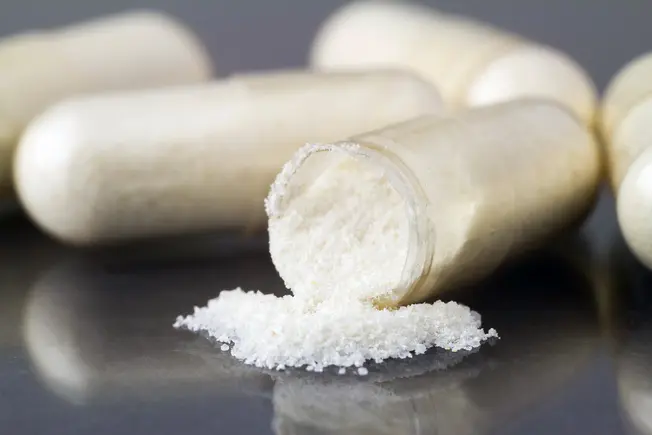Supplements for Joint Pain
See some that have been shown to work -- and some that are risky or even toxic:
Fish Oil/Omega-3s
These amber-colored oily supplements block proteins and fatty acids that can turn on inflammation. Your body turns them into anti-inflammatory chemicals called resolvins that can help take away joint stiffness and tenderness.
Glucosamine
This amino sugar is a natural part of the cartilage in your joints. Taking it as a supplement may help slow down cartilage loss, as well as ease stiffness, swelling, and pain. You can find it in capsules, tablets, liquid, or powder form. Your doctor may recommend you take it in combination with another supplement, chondroitin.
Chondroitin
This substance is a natural part of the connective tissue in your bones and cartilage. When you take it as a supplement, it can help boost the collagen in your joints to help you absorb shock better. It may help hold water in your cartilage too. That can make the tissue operate more smoothly. A little extra chondroitin could also help protect you from cartilage loss. The supplement form comes from animal cartilage.
Turmeric
This spice gives curry its yellow color. It may give you some pain relief too. A chemical in turmeric called curcumin blocks certain proteins that can cause inflammation. Over time, it can help joints ache less and help you move better.
Methylsulfonylmethane (MSM)
This sulfuric compound is naturally present in fruits, vegetables, grains, animals, and humans. Sulfur helps your body make connective tissue. Taking 1,000 to 3,000 mg or more of this natural chemical every day may help with symptoms of knee osteoarthritis, such as pain and swelling.
Vitamin D
Scientists who study rheumatoid arthritis have found that people who have the condition often lack vitamin D. Low levels of this essential nutrient may lead to chronic pain. When you take it as a supplement, it could help your arthritis treatment work better.
SAMe (S-adenosylmethionine)
Your liver produces this chemical compound. When you take it as a supplement, studies show SAMe can work as well as nonsteroidal anti-inflammatory medications (NSAIDs), such as ibuprofen and naproxen, to reduce inflammation and relieve pain. It may also help repair cartilage damage that causes arthritis symptoms.
Cat’s Claw (Uncaria Tomentosa)
This woody vine from Central and South America contains chemicals called tannins and sterols that may soothe inflammation. Studies show it might help with knee pain in osteoarthritis without side effects. If you have rheumatoid arthritis, cat’s claw could help ease pain and swelling in your joints.
Avocado Soybean Unsaponifiables (ASU)
Your joints are lined with special cells called synovial cells. ASU helps protect them so they can promote the growth of healthy connective tissue. Studies show that over time, people with osteoarthritis who take ASU supplements may need less pain medication than they did before.
Boswellia
Also called Indian frankincense, this plant extract has been a part of African and Asian folk medicine for centuries. The active ingredient in Boswellia can help with pain and improve movement in your joints. Research also shows it can slow down cartilage loss.
Borage Oil
This extract from seeds of the borago plant is high in gamma linolenic acid, a fatty acid that fights inflammation in the body. Daily borage oil supplements may help treat symptoms of rheumatoid arthritis and even reduce the dose you need of your prescription treatments for joint pain and swelling.
Supplements, like any medicine, come with risks. Thunder god vine, for example, has unpleasant side effects that may outweigh any potential benefit to your joints. Chaparral, arnica, and homemade kombucha tea can be toxic to your liver. Talk to your doctor before trying supplements of any kind -- even if you’ve heard they’re good for joint pain.






